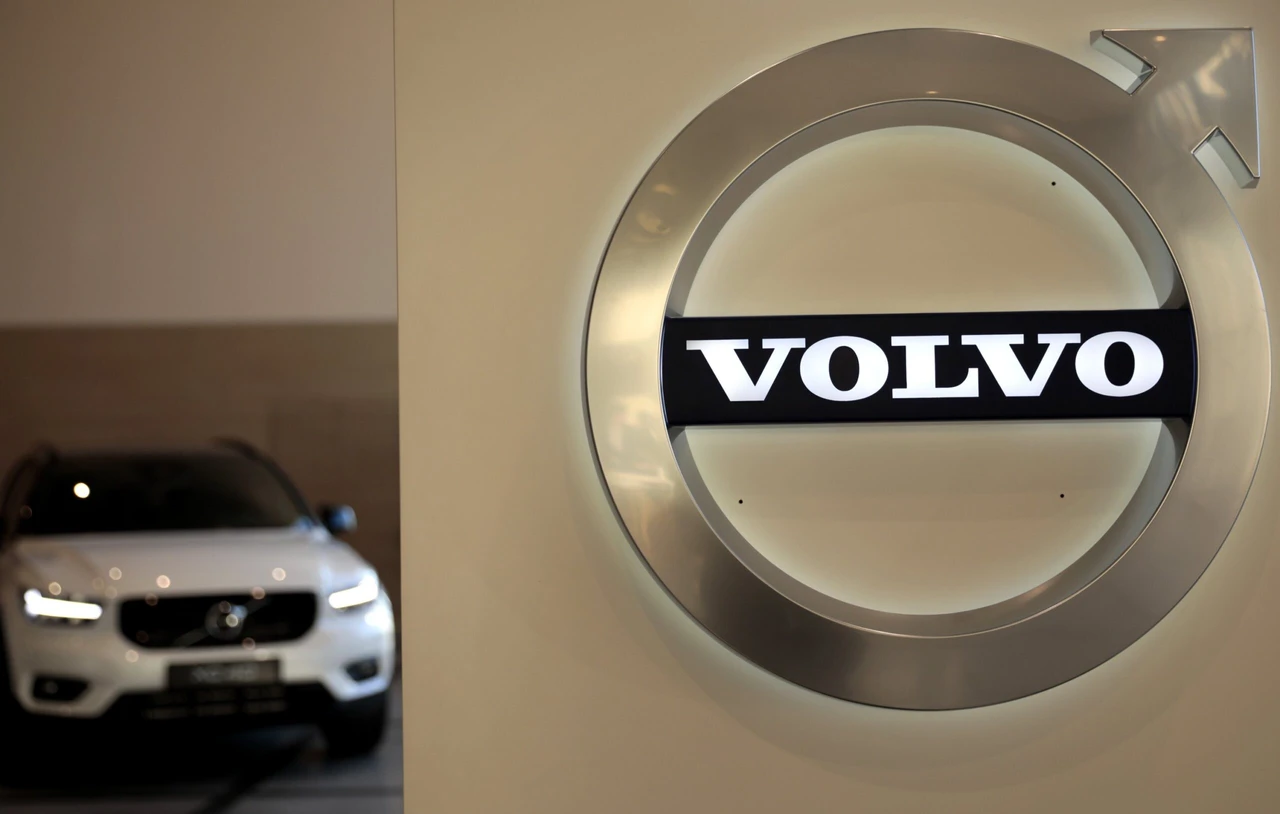Volvo halts sedan sales in Türkiye amid new tariffs, shifting electric vehicles
 A Volvo car is parked behind the Volvo logo in the lobby of the company's corporate headquarters, in Brussels, Belgium, Feb. 6, 2020. (AP Photo)
A Volvo car is parked behind the Volvo logo in the lobby of the company's corporate headquarters, in Brussels, Belgium, Feb. 6, 2020. (AP Photo)
Volvo Car Türkiye is making a significant shift in its strategy for 2024 by ceasing the import and sale of its sedan models produced in China.
This decision, driven by new customs tariffs, marks a pivotal move as the company adapts to regulatory changes while aiming to continue its growth in the Turkish market.
Volvo’s market outlook
- 2023 performance: Under the leadership of the new General Manager Alican Emiroglu, Volvo Car Türkiye has achieved a record-breaking 11,646 vehicle sales in 2023. Emiroglu, who has recently returned from managing Volvo Car Czech Republic, emphasized the pride he felt watching Türkiye’s success from abroad.
- 2024 projections: Despite an anticipated market slowdown in the remaining months of 2024, with a year-end market expectation of around 850,000 units, Volvo Car Türkiye is optimistic about surpassing its 2023 figures. The brand is targeting an increase in its market share, which has already reached a record 1.42% in the first seven months of 2024, compared to 1.2% in the previous year.
Why Volvo halt sedan sales in Türkiye?
- Sedan models phased out: Starting in 2024, Volvo will no longer sell its sedan models manufactured in China in the Turkish market. This decision comes in response to new customs tariffs, which now apply a 40% additional duty on all vehicles imported from China, regardless of fuel type. Emiroglu explained that this strategic shift is necessary, and the company does not plan to offer any sedan models in Türkiye until electric variants become available.
- SUV, electric models: Volvo’s SUV lineup is also evolving, with the XC40 model now transitioning to an electric-only variant, rebranded as the EX40. Additionally, the EX30, another electric model, is slated for introduction in mid-2025, with production based in Belgium. This model will target both premium and non-premium segments with aggressive pricing.
Volvo shifts focus electrical vehicles
- Plug-in hybrid market: Emiroglu also discussed the impact of recent changes to the Special Consumption Tax (SCT) regulations for plug-in hybrid vehicles in Türkiye. The adjustments, which reduce the SCT rate to 30% for specific models, are expected to boost the plug-in hybrid market, which Volvo views as a transitional technology toward full electrification. The company aims to close 2024 with 40% of its sales from plug-in hybrids and electric vehicles, with plans to exceed 60% by 2025.
- Exploring new market segments: Volvo is exploring the station wagon market in Türkiye, with plans to introduce the V60 model, recognizing the growing interest in this segment. However, the brand will discontinue its Cross Country models and complete the sale of its remaining diesel vehicles by the end of this year.



